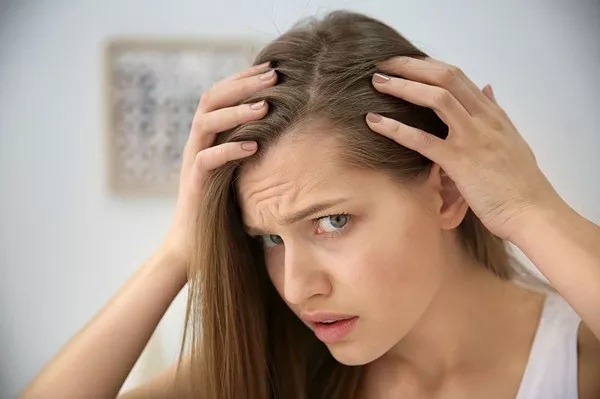Hair loss is a common concern that affects millions of people worldwide, causing distress and a search for possible solutions. Among the numerous factors attributed to hair loss, the quality of water we use for washing our hair has often been discussed. In this article, we aim to investigate the relationship between hard water and hair loss, examining scientific studies and expert opinions. So, let’s dive into the matter and unravel the truth behind this popular claim.
Understanding Hard Water:
What is Hard Water?
Hard water is water that contains high levels of dissolved minerals, particularly calcium and magnesium. These minerals accumulate due to the water passing through mineral-rich geological formations. When hard water is used for bathing or washing hair, it can leave mineral deposits on the scalp and hair strands.
The Effect of Hard Water on Hair:
The Mineral Buildup:
One of the main concerns associated with hard water is the mineral buildup it leaves on the scalp and hair. The minerals can accumulate on the hair shafts, making the hair feel rough, heavy, and less manageable. Over time, this buildup can affect the overall health and appearance of the hair.
Dryness and Scalp Irritation:
Hard water’s high mineral content can have a drying effect on both the scalp and hair. It can strip away natural oils, leaving the scalp dry and prone to itchiness and flakiness. This dryness can make the hair brittle, leading to breakage and hair loss.
Debunking the Hair Loss Myth:
Understanding Hair Growth Cycle:
It is essential to understand that hair loss is a complex issue influenced by various factors, including genetics, hormonal changes, nutritional deficiencies, and lifestyle. The growth cycle of hair involves phases of growth, rest, and shedding. The idea that hard water alone can cause significant hair loss is unsupported by scientific evidence.
Lack of Scientific Consensus:
While anecdotal evidence suggests a link between hard water and hair loss, scientific studies on this specific topic are limited. Research has yet to establish a direct causal relationship between hard water and hair loss. Factors like genetic predisposition and other underlying conditions often play more significant roles in hair loss.
Expert Opinions and Recommendations:
Expert Insights:
Dermatologists and hair experts emphasize the importance of overall hair and scalp care, rather than focusing solely on water quality. They suggest that regular and gentle cleansing, conditioning, and proper hair care routines are vital for maintaining healthy hair, regardless of water hardness.
Water Softening Solutions:
For individuals living in areas with consistently hard water, installing a water softening system can help reduce the mineral content. Water softeners work by exchanging calcium and magnesium ions with sodium ions, resulting in softer water. Softened water can potentially alleviate some of the effects of hard water on the hair and sca
Tips for Hair Care in Hard Water Areas:
Clarifying Shampoos:
Using clarifying shampoos occasionally can help remove mineral buildup caused by hard water. These shampoos are formulated to eliminate excess product buildup, oils, and minerals from the hair and scalp, restoring their natural balance.
Conditioning and Moisturizing:
Conditioning the hair after every wash is crucial to restore moisture and combat dryness caused by hard water. Deep conditioning treatments and leave-in conditioners can provide extra nourishment and hydration, keeping the hair soft, manageable, and less prone to breakage.
Protective Measures:
Wearing a shower cap or using filtered showerheads can provide a physical barrier against direct contact between hard water and the hair. Filtered showerheads can help reduce the mineral content, resulting in softer water for washing the hair.
Conclusion:
While hard water can have detrimental effects on the hair and scalp, the claim that it directly causes hair loss lacks substantial scientific evidence. Hair loss is a complex issue influenced by multiple factors, and genetic predisposition and underlying conditions often play more significant roles. However, the mineral buildup and drying effect of hard water can contribute to hair damage and make it more susceptible to breakage.
To maintain healthy hair in hard water areas, it is essential to adopt a comprehensive hair care routine. This includes using clarifying shampoos to remove mineral buildup, regular conditioning to restore moisture, and protective measures like shower caps or filtered showerheads. Additionally, considering water softening solutions can help reduce the mineral content in the water and alleviate the effects of hard water on the hair and scalp.
In conclusion, while hard water may have adverse effects on hair health, it is not a direct cause of hair loss. Understanding the complexity of hair loss and implementing a holistic hair care regimen are key to maintaining strong and healthy hair. Rather than fixating on water quality alone, individuals should focus on overall hair care practices and seek professional guidance for personalized advice. So, rest assured, the relationship between hard water and hair loss may be less significant than it seems, but taking proactive steps to care for your hair is always beneficial.

